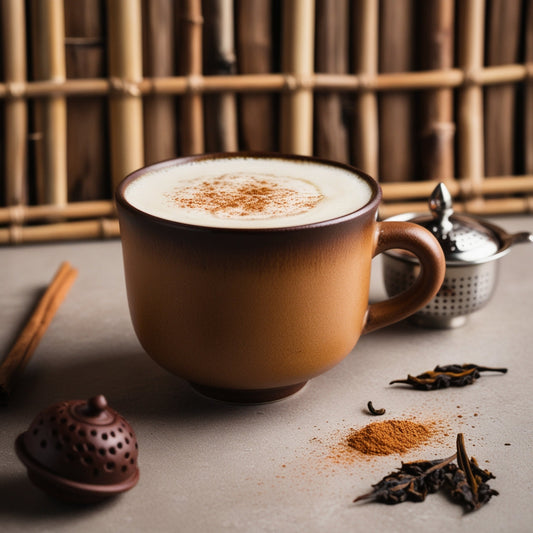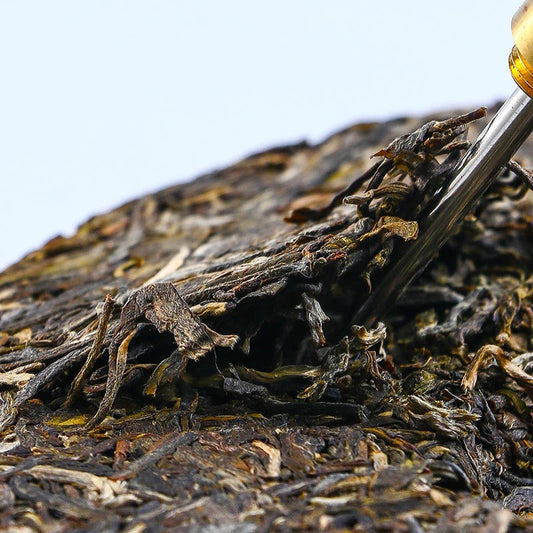Introduction
Homebrewing offers a unique and rewarding experience, allowing you to create personalized brews tailored to your tastes. Among the vast array of brewing possibilities, a Pu-erh Porter stands out as a sophisticated and intriguing choice. This fusion of traditional porter beer with the rich, earthy tones of Pu-erh tea results in a beverage that's both complex and delightful. Let's dive into the process of creating your very own Pu-erh Porter homebrew, complete with detailed nutritional data, dietary labels, and some fascinating facts about the ingredients.
Ingredients and Equipment
Ingredients
- 6.6 lbs (3 kg) Liquid Malt Extract (LME) - Dark
- 1 lb (450 g) Crystal Malt (40L)
- 0.5 lb (225 g) Chocolate Malt
- 0.5 lb (225 g) Black Patent Malt
- 1 oz (28 g) Northern Brewer Hops (bittering)
- 1 oz (28 g) East Kent Goldings Hops (flavoring)
- 2 oz (57 g) Pu-erh Tea (loose leaf)
- 1 packet English Ale Yeast (Safale S-04)
- 5 oz (140 g) Priming Sugar (for bottling)
- 5 gallons (19 liters) Water
Equipment
- Brew kettle (at least 5 gallons)
- Fermenter with airlock
- Strainer or cheesecloth
- Bottling bucket
- Bottles and caps
- Bottle capper
- Hydrometer
- Thermometer

Brewing Process
Step 1: Steeping the Grains
First, heat 3 gallons of water in your brew kettle to 155°F (68°C). Add the Crystal Malt, Chocolate Malt, and Black Patent Malt grains to a grain bag and steep in the water for 30 minutes. This step extracts the essential flavors and colors from the grains, setting the foundation for your porter.
Step 2: Adding Malt Extract
Remove the grain bag and bring the water to a boil. Once boiling, remove from heat and stir in the Liquid Malt Extract (LME) until fully dissolved. This addition provides the fermentable sugars necessary for alcohol production.
Step 3: Boiling and Hopping
Return the kettle to the heat and bring it back to a boil. Add the Northern Brewer hops and boil for 45 minutes. This hop addition contributes bitterness to balance the sweetness of the malt. Then, add the East Kent Goldings hops and continue boiling for another 15 minutes for flavor and aroma.
Step 4: Incorporating Pu-erh Tea
After the boil, remove the kettle from the heat. Add the Pu-erh tea leaves directly into the hot wort and let them steep for 10 minutes. Strain out the tea leaves using a strainer or cheesecloth.
Step 5: Fermentation
Cool the wort rapidly by placing the kettle in an ice bath. Once the wort reaches 70°F (21°C), transfer it to your fermenter and top up with water to make 5 gallons. Pitch the yeast by sprinkling it on top of the wort, then seal the fermenter with an airlock.
Step 6: Bottling
After about two weeks of fermentation, check that fermentation has completed using a hydrometer. Prepare a priming solution by dissolving 5 oz of priming sugar in a cup of boiling water. Add this solution to a bottling bucket, then siphon the beer into the bucket, mixing gently. Bottle the beer and cap each bottle.
Step 7: Conditioning
Allow the bottles to carbonate at room temperature for about two weeks. After carbonation, chill and enjoy your Pu-erh Porter!
Comprehensive Nutritional Data
For a standard 12 oz (355 ml) serving:
- Calories: 210
- Carbohydrates: 18g
- Sugars: 2g
- Protein: 2g
- Fat: 0g
- Fiber: 1g
- Alcohol by Volume (ABV): 5.5%
Health Benefits
- Antioxidants: Pu-erh tea is known for its high antioxidant content, which helps in reducing oxidative stress.
- Probiotics: The fermentation process in Pu-erh tea promotes the growth of beneficial gut bacteria.
- Low Fat: This brew is naturally low in fat, making it a heart-healthy choice.
- Moderate Alcohol Content: The moderate ABV ensures that you can enjoy your brew responsibly.
Dietary Labels
- Vegan: This Pu-erh Porter is vegan, as it contains no animal products.
- Gluten: While traditional brewing ingredients contain gluten, you can substitute with gluten-free malts if needed.
- Keto: This recipe is not keto-friendly due to its carbohydrate content.
- Low Fat: This beer is naturally low in fat.
Fun Facts About Pu-erh Tea and Porter
Pu-erh Tea
Pu-erh tea originates from the Yunnan province in China and has been enjoyed for centuries. Unlike other teas, Pu-erh undergoes a unique fermentation process, enhancing its flavor profile and health benefits. It is often aged, with some varieties being several decades old, adding to its mystique and allure.

Porter
Porter, a dark style of beer, emerged in London in the 18th century. It became popular among street and river porters, hence the name. The robust and hearty characteristics of porter make it a perfect canvas for experimenting with additional flavors, such as the earthy richness of Pu-erh tea.
Conclusion
Homebrewing a Pu-erh Porter provides a wonderful opportunity to explore the intersection of tea and beer, resulting in a unique and satisfying beverage. The intricate balance of malty sweetness, hop bitterness, and Pu-erh tea's earthy depth creates a porter like no other.
For an even more refined brewing experience, try incorporating the finest Pu-erh tea from Pu-erh Craft. Their high-quality teas can elevate your brew, bringing out the best flavors and aromas. Happy brewing!
Enjoy crafting this Pu-erh Porter, and share your brewing adventures with friends and family. There's nothing quite like savoring a brew made with your own hands, especially when it features such unique and delightful ingredients. Cheers!






